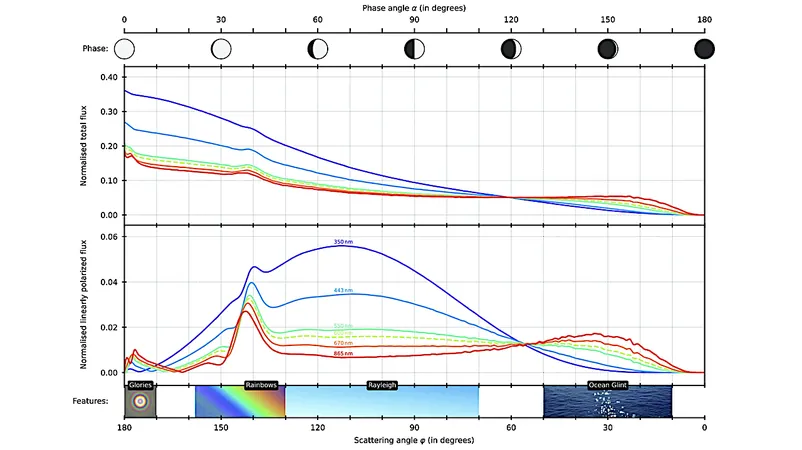
Unlocking the Secrets of Exoplanets: Are We Close to Finding Liquid Water?
2025-07-08
Author: Sarah
The Quest for Habitable Worlds
Imagine planets teeming with vast oceans, where temperate climates could foster life as we know it. The search for such worlds is heating up, and central to this mission is the illustrious Habitable Worlds Observatory (HWO). Its primary goal? To pinpoint which exoplanets boast liquid water on their surfaces.
Why Water Matters
Liquid water is a game-changer in the hunt for extraterrestrial life. Detecting it doesn’t just hint at a planet's climate—it challenges our understanding of how planets form and acquire essential volatiles. The presence of water could reveal a history of geological processes beyond our own solar system.
Revolutionary Techniques to Reveal Water
So, how do astronomers identify these mystical oceans? They use advanced methods like tracking the slight variations in a planet’s brightness as it rotates. This rotational variability could unveil surface features—imagine oceans coming in and out of view as the planet spins.
Orbital changes in light reflection and polarization are pivotal in showcasing the surface characteristics. Large bodies of water exhibit distinct optical behaviors, allowing scientists to hone in on liquid water amidst a sea of data.
A New Frontier in Exoplanet Research
The HWO is on the cutting edge, uniquely equipped to identify surface oceans due to its sophisticated optical technologies. Finding such oceans could validate a planet as habitable, solidifying HWO’s position as a crucial player in exoplanet research.
The Future of Astrobiology Is Bright
With the combined expertise of scientists like Nicolas B. Cowan and his team, the vision for uncovering habitable worlds is clearer than ever. As we delve deeper into the cosmos, each discovery brings us a step closer to answering the age-old question: Are we alone in the universe?



 Brasil (PT)
Brasil (PT)
 Canada (EN)
Canada (EN)
 Chile (ES)
Chile (ES)
 Česko (CS)
Česko (CS)
 대한민국 (KO)
대한민국 (KO)
 España (ES)
España (ES)
 France (FR)
France (FR)
 Hong Kong (EN)
Hong Kong (EN)
 Italia (IT)
Italia (IT)
 日本 (JA)
日本 (JA)
 Magyarország (HU)
Magyarország (HU)
 Norge (NO)
Norge (NO)
 Polska (PL)
Polska (PL)
 Schweiz (DE)
Schweiz (DE)
 Singapore (EN)
Singapore (EN)
 Sverige (SV)
Sverige (SV)
 Suomi (FI)
Suomi (FI)
 Türkiye (TR)
Türkiye (TR)
 الإمارات العربية المتحدة (AR)
الإمارات العربية المتحدة (AR)